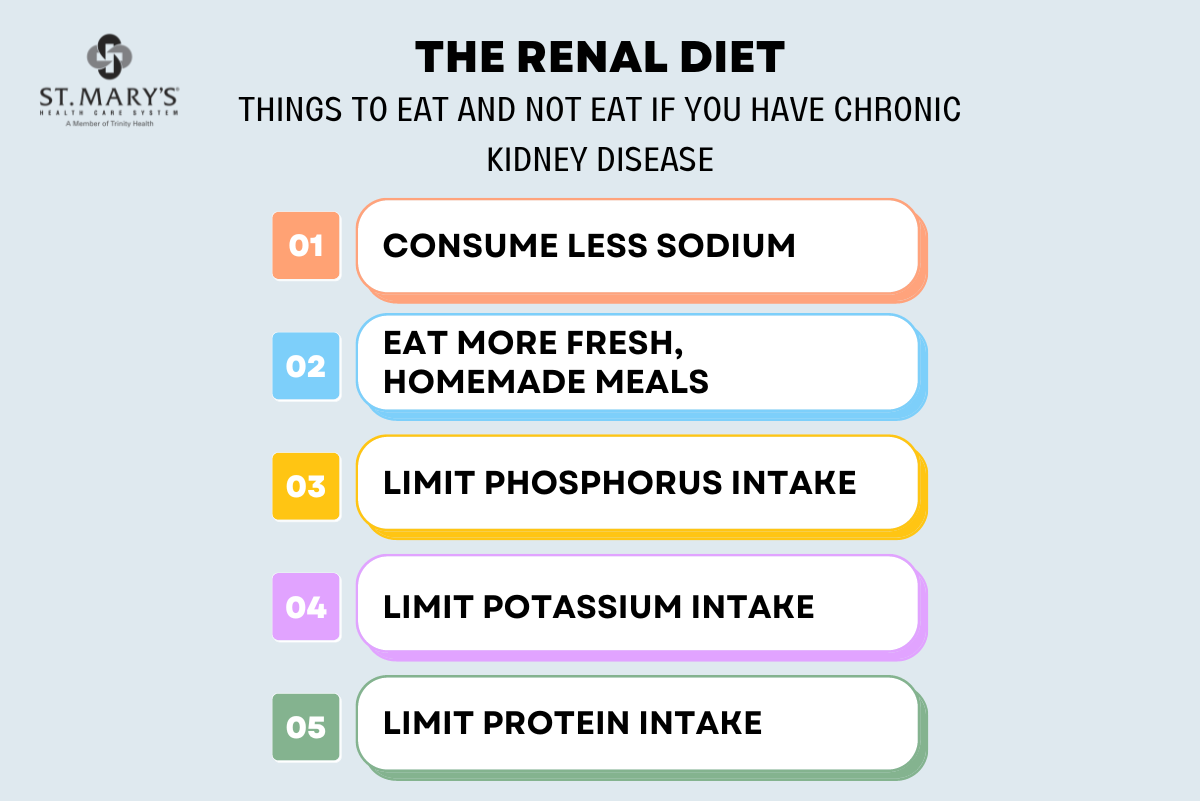The Renal Diet: Foods to Eat When You Have Chronic Kidney Disease
March 12, 2023It is important to include foods that will give you energy and keep you nourished
If you have chronic kidney disease, you may need to manage your condition by changing your diet. It is important to talk to a registered dietician to find out the best meal plan for you and your kidneys. Your specific diet will depend on whether you’re in the early or late stages of chronic kidney disease (CKD) or if you’re on dialysis.
What Foods Should I Limit with Chronic Kidney Disease?
It is important to consume less salt and sodium if you have been diagnosed with CKD. In this disease, the kidneys slowly lose the ability to manage your body’s sodium-water balance. Consuming less sodium will help lower blood pressure as well as reduce fluid buildup in the body. High blood pressure and fluid buildup are common characteristics of kidney disease.
Salt is the most common source of sodium in our diets. MSG (monosodium glutamate) is another common source of sodium. To help manage your sodium intake, eat more fresh, homemade food and limit or eliminate added salt and MSG. Eat only small amounts of restaurant food or packaged foods since they typically have a high sodium count. It is important to consume foods with 5% or less sodium levels.
Depending on your stage of kidney disease, you may also need to reduce potassium, phosphorus, and protein levels in your diet.
Phosphorus
Although phosphorus is an important mineral in keeping your bones strong, it can be harmful to an individual with chronic kidney disease. Weakened kidneys cannot remove extra phosphorus from the blood. Ironically, too much phosphorus can lead to weakened bones and can damage blood vessels, eyes, and your heart. Foods high in phosphorus include meat, dairy, beans, nuts, whole-grain bread, and dark-colored sodas.
Potassium
This element helps nerves and muscles work efficiently in the body. But if you have CKD, high levels of potassium can build up in the blood and create serious heart complications. Foods high in potassium include oranges, bananas, potatoes, tomatoes, and whole-grain bread.
Protein
It is always important to eat the appropriate amount of protein, but it’s especially important if you have CKD. High levels of protein can make the kidneys work harder and worsen chronic kidney disease.
Need Help?
If you have CKD, it is important to speak with a registered dietician to better understand what you need to include and avoid in your diet. Ask your primary care provider for a referral and start improving your health today.
St. Mary’s Nutrition Services provides a staff of licensed registered dietitians who can help patients with a wide range of conditions and needs meet their nutritional requirements.

